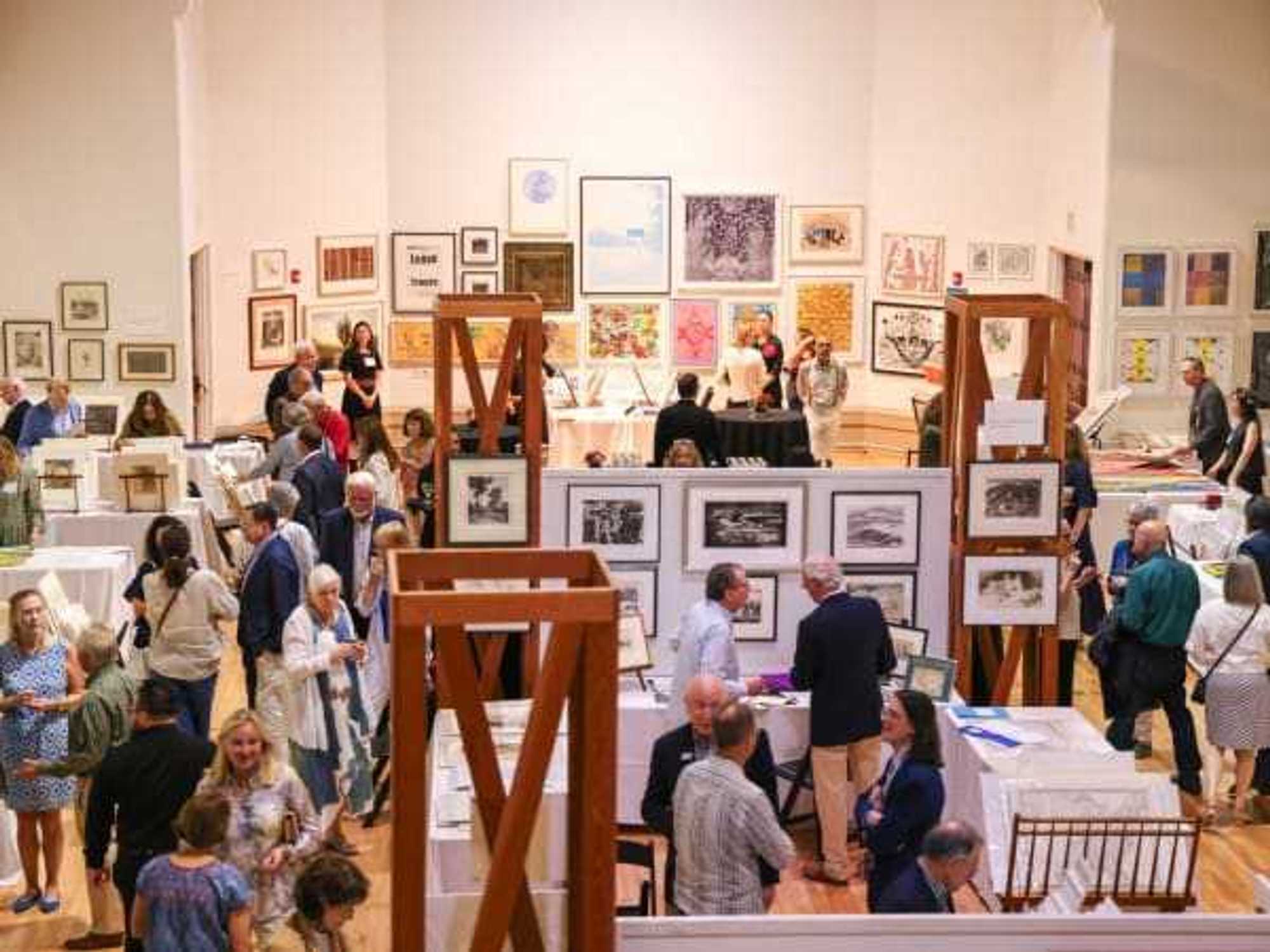Bag to the future
Brooklyn artist fashions plastic waste into immersive Austin theater experience

At first glance, the Plastic Bag Store looks like a regular corner store with produce, frozen goods, and a small bakery. But something is a little off: the tomatoes look oddly flimsy; familiar boxes of cereal are labeled “Yucky Shards'' and “Caps N’Such.” Some items are wrapped in styrofoam and plastic, and a closer inspection reveals that everything in the store is made of plastic.
The popular immersive show by puppet artist Robin Frohardt is opening Saturday, April 2 in Austin, a city chosen for its receptiveness to the weird.
“Austin is such a fun town,” says Frohardt. “It seems like the kind of audience that's totally game for something really weird and new, and wacky. I can just be like, ‘Hey, it's this weird dark puppet thing.’ I just have a feeling that Austin will be like, ‘Oh, yeah, totally.’”
The pop-up storefront offers plenty of fun opportunities for exploration, picking through the expansive inventory fashioned from reclaimed plastic waste. Some products, like the cereals, are vehicles for cheerfully grim jokes; others are just surreal. But it’s not just a space to browse unloveable wares.
For three or four performances per day, the store shifts into an immersive theater. Shelves fold into seating or reveal projection screens. The audience is welcomed into a freezer and ushered into hidden rooms. A narrative begins to unfold through a three-part film and live performance, shown in different parts of the walkthrough. Corresponding to the ancient, present, and distant future lives of one hypothetical piece of plastic, the mini films bring humor into the often humorless issue of single-use plastic waste.
“It's not like we just bring everyone into a grocery store and sit them down, and show them a 45-minute educational film about the horrors of plastic,” says Frohardt, who sees the project as a question asked, rather than a solution pushed. “I'm not interested in totally bumming people out. And I'm not interested in being didactic and shaming people.”
Rather than just making a few observational jokes, the narrative scenes test reasonable scenarios in absurd contexts: an ancient civilian invents a strange, single-use object; scientists misinterpret discarded relics from our present. Frohardt uses these scenes to explore what she calls “misplaced nostalgia,” a tendency to romanticize timelines we haven’t experienced. It has potential to elevate the plastics we neglect to physical issues we can notice and interact with now.
“We are going to leave a lot of this behind and people are going to want to know about us,” predicts Frohard. “In my puppet show, they find so much of it. And it was so durable, they thought surely these things were meant to [be] very important. Surely they had great significant value to these people. Why else would they make so much of it, if it wasn't super important?”
The Texas show is a little different than the iterations in New York, Los Angeles, and Chicago. It took time to build as Frohardt waited to come across plastic waste to either match her creative needs or inspire a new product. This Southern store peddles brisket, watermelon, and other local products. Although the artist hasn’t been in town long enough to notice any patterns in Austin plastics, she laments Topo Chico’s use of plastic bottles.
Patterns in other cities created a cognitive dissonance in Frohardt, who found herself “coveting” certain plastics that were rarer to come across. Like many modern world citizens, she felt an aversion to the materials she needed to accomplish her goals, yet excited about what they enabled her to do. And like many hoping for a less plastic-dependent future, she’s found it impossible to live completely plastic-free.
Although plastic is forever, this show will only be in Austin until April 17. Tickets for the installation at Blue Genie Art Bazaar ($5-20 tiered) are on sale now at texasperformingarts.org. Walk-up sales will be available depending on capacity.
